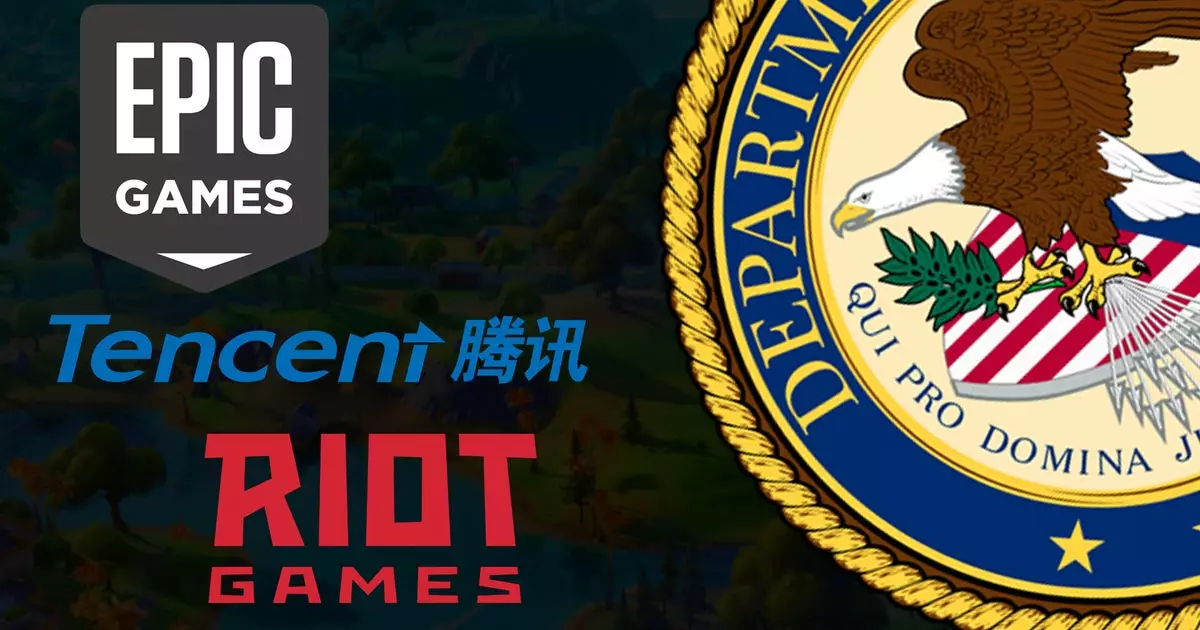In a significant development within the gaming industry, Epic Games has seen two of its board members resign following a drawn-out investigation by the U.S. Department of Justice (DoJ) focused on potential antitrust violations. The resignations signal a tightening scrutiny of corporate governance and ownership in an increasingly competitive landscape where conglomerates wield considerable influence over multiple gaming enterprises.
The crux of the DoJ’s investigation stems from Epic’s affiliation with Tencent, a large player in the gaming market that holds a minority stake in Epic. The government’s concerns arose because Tencent also owns Riot Games outright, a major competitor to Epic Games. In essence, the U.S. authorities deemed it inappropriate for individuals affiliated with a competing company—via Tencent—to hold positions on Epic’s board. This situation illustrates the complexities of modern corporate structures where cross-ownership can lead to conflicts of interest, potentially violating antitrust laws under the Clayton Act.
The repercussions of this probe are not taken lightly. Following the investigation, both Ben Feder and David Wallerstein—senior Tencent executives—decided to step back from their roles at Epic. Their departures highlight a necessary recalibration within corporate governance to uphold legality and ethical practice, given the current regulatory environment.
The resignations of Feder and Wallerstein are not just administrative changes; they underscore a broader discourse surrounding corporate accountability and antitrust enforcement. Feder’s tenure as the President of International Partnerships at Tencent and Wallerstein’s position as Senior Executive Vice President underline the intricate ties between these companies. By stepping down, they aim to mitigate any potential ramifications for both Tencent and Epic Games, allowing the latter to navigate its operations without the looming shadow of an antitrust investigation.
This scenario evokes comparisons to classic corporate rivalries, such as enabling executives from Coca-Cola to hold sway in PepsiCo’s boardroom. Such an arrangement would raise serious concerns about fair competition—an essential component of both the economic landscape and consumer welfare.
The framework of antitrust laws serves a crucial function; it is designed to prevent monopolies and promote fair competition. Such legal provisions are vital, especially in industries where digital marketplaces are rapidly evolving. The DoJ’s actions are a reminder that large corporations cannot operate with impunity, particularly when they might unduly influence competitor companies. Precedent for this type of scrutiny exists, as highlighted by previous cases involving other industry giants like Valve and Microsoft, to name a few.
The task of regulating corporate behavior falls increasingly on agencies such as the DoJ, and their investigations serve as both a deterrent against malfeasance and a necessary mechanism for maintaining a level playing field for all market participants.
Looking ahead, the ramifications of these resignations could pave the way for more stringent governance practices within Epic Games, as well as potentially across the gaming sector. Tencent’s assurance to amend its shareholder agreement with Epic—restricting future board appointments—could represent a newfound commitment to adhere to ethical governance standards.
Moreover, this situation serves as a display of the evolving dynamics within the gaming industry, where companies may need to reassess their corporate structures and relationships to ensure compliance with legal standards. The landscape will likely shift further as regulatory bodies continue to scrutinize mergers and partnerships within the tech and gaming world.
The recent resignations at Epic Games due to antitrust investigations signal not only the legal complexities of corporate governance in the gaming industry but also the necessity of maintaining ethical boundaries. In an environment where competition intensifies, gaming companies must carefully navigate their partnerships and structural designs to thrive without incurring regulatory scrutiny. This incident at Epic serves as a key reminder of the balancing act between innovation, collaboration, and compliance in a rapidly evolving industry.

